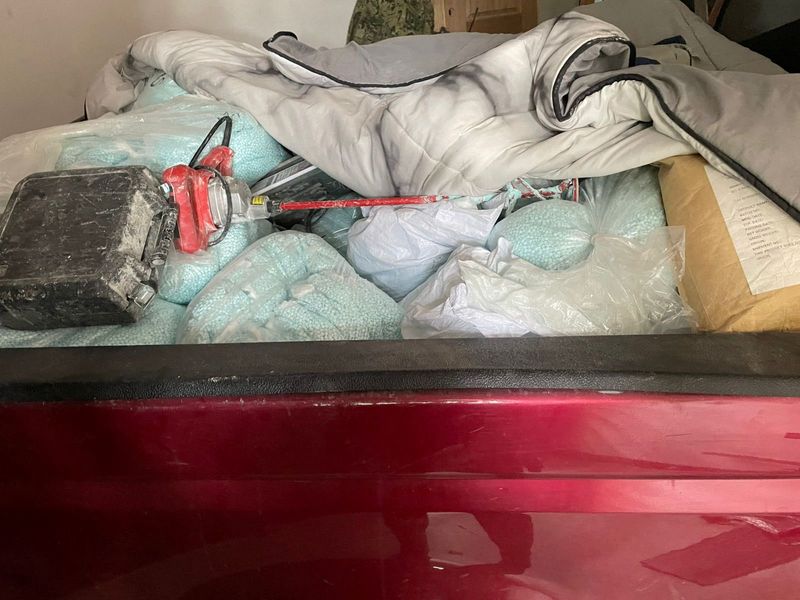MEXICO CITY (Reuters) -Mexican security forces said on Wednesday they had made the largest fentanyl seizure in the country's history, impounding 1,100 kilograms of the synthetic opioid in the state of Sinaloa.
In a statement, law enforcement said the seizure was the equivalent of 20 million fentanyl doses and would cause an economic hit to organized crime of an estimated $400 million.
There has been worsening violence recently in Sinaloa, where factions of the Sinaloa Cartel have been engaged in bitter fighting that flared after the capture of kingpin Ismael "El Mayo" Zambada in July.
U.S. President-elect Donald Trump has vowed to get Mexico to do more to stop the flow north of fentanyl, which has killed hundreds of thousands of Americans. He has threatened to impose steep tariffs if he does not see curbs on fentanyl trafficking and illegal migration.
Mexican authorities said on Wednesday they had apprehended over 5,200 migrants across the country on Tuesday, signaling a further ramp-up in enforcement aimed at stopping migrants from reaching the U.S. border.
Security forces found the fentanyl at two properties in the municipality of Ahome, which intelligence work and tip-offs from the public had led them to investigate.
In one building, law enforcement found 800 kilograms of fentanyl, some precursor chemicals and four vehicles. In the other, they discovered 11 packages totaling about 300 kilos of fentanyl, as well as precursors, scales and industrial mixers.
"This is an investigation that has been going on for a long time and yesterday, it gave these results," President Claudia Sheinbaum told a press conference on Wednesday, adding that it was the largest ever seizure of fentanyl.

Mexico has in the past appeared to inflate seizure numbers. A Reuters investigation in 2023 revealed that the army had dramatically revised upward the number of drug lab raids it claimed to have conducted by including facilities that were already out of use.
Former President Andres Manuel Lopez Obrador, who handed power to Sheinbaum in October, repeatedly denied Mexico was a center for the production of fentanyl despite significant evidence to the contrary.